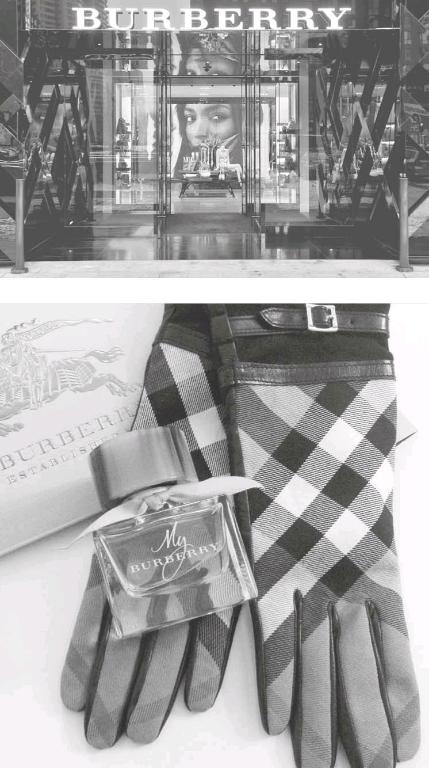Burberry Shares Plunge after Dive in China Sales
2016-02-21
Hit by Chinas Economic Slowdown
British designer Burberry has been hit by Chinas economic slowdown as customers in the Asian country cut back on luxury spending, it revealed.
Stocks in the iconic brand plummeted by around 12 per cent after the disappointing first half update.
The luxury retailer has recently been fronted by the likes of Kate Moss, Brooklyn Beckham and Cara Delevingne, but said it would now ramp up cost savings to offset slowing sales growth.
The fashion favourite reported that like-for-like sales had fallen by four per cent in the second quarter, after edging up by just 1 per cent in the first quarter.
Burberry blamed Chinas economic woes for the slowdown, as demand for upmarket goods in the market has fallen.
The fashion house generates about a third of its sales from the Asia Pacific region with a significant portion coming from China.
Christopher Bailey, Burberry chief executive, said: “The external environment became more challenging during the half, affecting luxury consumer demand in some of our key markets.
“In response, we have intensified our focus on driving sales and productivity, while taking swift action on discretionary costs.”
He added: “While mindful of this external volatility, our plans for the festive season position us well to return to a more positive sales trend in the allimportant second half.”
Annual profits would be broadly in line with the recently trimmed forecasts, according to the brand.
But retail analysts have cut their full-year expectation from £462m to£445m.
Ian Forrest, investment research analyst at The Share Centre, said: “A disappointing first half trading update from Burberry has hardly surprised investors.
“The main focus was on the news that second quarter sales in China dropped as the external environment became more challenging.
“For interested investors, it is worth noting that amidst the focus on trading in China, the company did report good sales growth in Europe and the Americas.
“The shares dropped 11 per cent in early trading and are now at a two-year low.
“We had previously recommended Burberry as a ‘buy for medium risk investors seeking growth.
“In the light of the worsening position for luxury goods, generally in China, highlighted by recent news from other companies in the sector, we have placed our recommendation under review.”
Chinas Economic Slowdown has Prompted Fears over the Global Economy
Burberry joins LVMH, which earlier this week became the first major luxury goods company to warn that the stock market collapse in China over the summer had affected sales, particularly at its flagship Louis Vuitton brand.
City investors and analysts were disappointed as Burberry said retail revenues were up only 2% to £774m in the most recent six months. Analysts had expected around £818m. Comparable sales over the first three months of the period were up 6%, but slumped by 4% in the second quarter.
The company said pretax profit was now expected to be “broadly in line with the average of those analysts who have recently updated forecasts” or£445m. That figure was below the previous average forecast of £460m, but Carol Fairweather, Burberrys finance chief insisted that the dip was not a profit warning.
The slowdown is macro. It has been driven by consumer sentiment. The company points to the Chinese stock market turmoil, yuan devaluation and slowing economic growth.
The Chinese customer is still travelling and shopping. The Chinese were now going to Japan and mainland Europe to shop, rather than Hong Kong and the UK, which has been hampered by the pounds strength against the euro.
Chinas economic slowdown has prompted fears over the global economy. The countrys stock markets have seen repeated bouts of panic selling this summer, with “Black Monday”sending world markets into a spin. This prompted Beijing to take unprecedented measures to stop the rout, including the biggest devaluation of the yuan in 20 years, to help exporters and boost the flagging economy.
Burberrys sales in mainland China and Asia-Pacific fell in the six months to the end of September. The region makes up 40% of Burberrys revenues.
Just at the Beginning of a Journey
Sales at established stores in Japan rose by 50% from a low base. But Burberry missed out on Chinese shoppersdash to the country as it closed hundreds of small outlets after buying back out its long-term licensee. The brand is moving upmarket from its traditional position in Japan, bringing in luxury products and a retail image in line with the rest of the world. The company has six standalone stores and 29 concessions at present. It plans to open a further 10 by 2020 and up to 40 new concessions. Burberry was “just at the beginning of a journey”.
In Hong Kong, sales crashed more than 20% in the second quarter, but all of Burberrys stores there were still profitable. UK fashion chain Ted Baker has also taken a hit in China and Hong Kong, saying visas were being restricted for people coming from the mainland.
Anusha Couttigane, senior consultant at Conlumino, said: “Weakening consumer sentiment, especially since the crash of the Chinese market during the summer, has transformed a once booming region into Burberrys chief area of concern.”
Burberrys Plans for the Festive Season
Christopher Bailey, chief executive and chief creative officer, said he hoped that Burberrys plans for the festive season – Christmas and Lunar New Year in China and Korea – would return it to a “more positive sales trend in the allimportant second half”.
The company has stepped up efforts to cut costs by £20m to minimise the impact on this years profits, which include a hiring freeze outside its retail operations.
The company will highlight its traditional scarves in a new advertising film for Christmas – after successfully generating publicity for its trenchcoats with last years ad featuring Romeo Beckham.
Burberry also hopes to generate growth from a move into selling makeup and perfumes including Brit Splash and My Burberry eau de toilette.
In the US, sales slowed in the past three months, while the rest of the Americas experienced double-digit growth in the past six months. Europe was another bright spot: comparable sales were up more than 20% in Italy, France and Spain which significantly outperformed the UK.
The company opened 14 standalone stores and 16 concessions in the past six months, including a new flagship store in Tokyo along with shops in Seoul, New York and Dubai.
Jeremy Cook, chief economist at foreign exchange firm World First, said:“If the devaluation of the yuan and the weakness of Chinese and emerging market economies were the first shoe to drop, then the slowing of demand and sales for luxury retailers like Burberry is surely the next.”
“Burberry is in an interesting position as a result of its international expansion with exposure to some of the most volatile currencies out there; everyone is focused on the yuan but the moves in the Russian rouble, South Korean won and the euro will have made trading conditions very difficult.”
